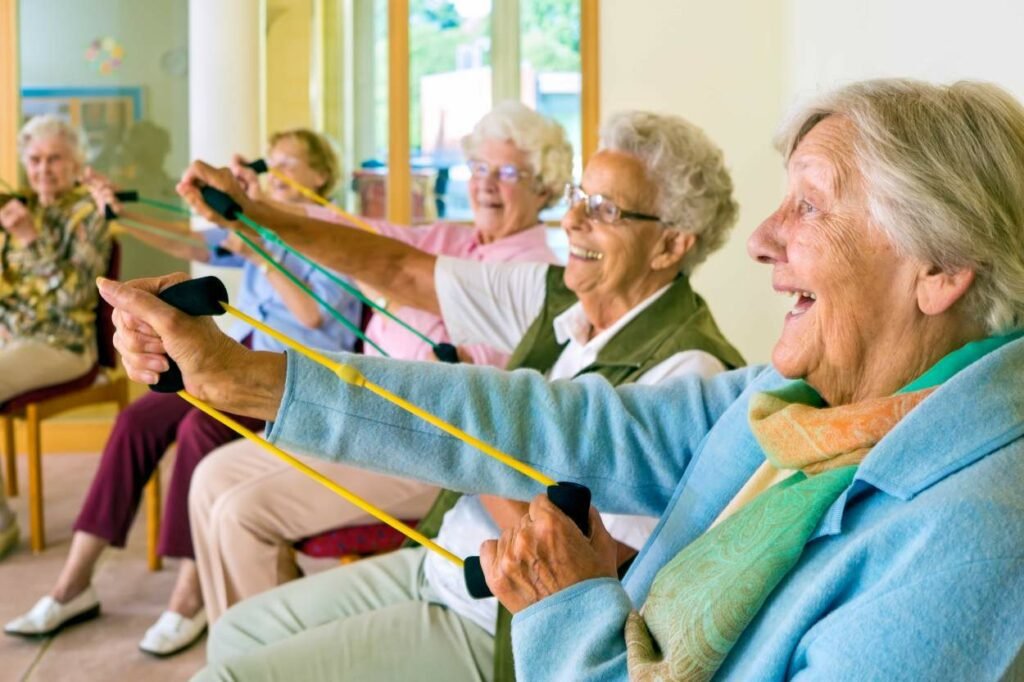
SILVER READERS CIRCLE
“A reader lives a thousand lives before he dies . . . The man who never reads lives only one.”
George R.R. Martin
OUR PROGRAM
At Cynthia F. Blaizes Foundation, we believe that books are not just vessels of knowledge but keys to unlocking the vast landscapes of imagination and understanding. We strive to create a haven where seniors can embark on literary adventures, forge meaningful connections, and find solace in the warmth of shared stories.
Every week, in rehabilitation centers and nursing homes, 25 seniors come together to immerse themselves in the enchanting world of literature. As we turn the pages of beloved classics and contemporary gems, we embark on a journey of exploration and discovery, guided by the gentle rhythm of storytelling.
But that's not all. In the digital age, we extend our embrace beyond physical confines. Through the magic of technology, we host a Zoom book reading experience, inviting another 25 seniors to join us from the comfort of their homes. It's more than just a virtual gathering; it's a lifeline—a bridge that connects hearts, minds, and spirits across the digital divide.
Our Zoom sessions are not mere spectacles; they're vibrant hubs of interaction. As we delve into the chapters together, we spark conversations that transcend screens, forming a network of support, friendship, and camaraderie.
But the magic doesn't stop there. After each reading session, we do an open panel discussion about the chapter(s) read. Here, every voice is heard, every insight cherished, and every connection deepened.
At Cynthia F. Blaizes Foundation, we understand that reading is not just a solitary pursuit but a communal experience—a journey best traveled together. Our Silver Readers Circle experience is more than just flipping pages; it's a celebration of the human spirit, a testament to the power of connection, and a beacon of light in a world hungering for unity and understanding.
Improves Concentration
Reading serves as a potent enhancer of concentration among the elderly by providing a focused mental activity that demands sustained attention. Engaging with written text requires individuals to immerse themselves in a single task, effectively training the brain to filter out distractions and maintain cognitive focus. As older adults regularly delve into books, their ability to sustain concentration improves, bolstered by the challenging nature of comprehending complex narratives or absorbing intricate information. This continual exercise of concentration not only sharpens cognitive abilities but also cultivates a sense of mental discipline, allowing seniors to navigate daily tasks with heightened attentiveness and clarity of thought.
Increases Analytical Skills
Reading serves as a catalyst for sharpening analytical skills in the elderly by constantly challenging the mind to process, evaluate, and interpret information. As seniors engage with diverse literary works, they encounter complex narratives, nuanced arguments, and varied perspectives, all of which demand critical thinking and analysis. By grappling with the intricacies of plotlines, characters, and themes, older adults exercise their cognitive faculties, honing their ability to reason, infer, and draw connections. This cognitive stimulation not only strengthens analytical skills but also fosters a deeper understanding of the world and its complexities, empowering seniors to approach challenges with greater insight and adaptability.
Enhances Sleep Quality
Reading before bed can significantly enhance sleep quality in the elderly by facilitating relaxation and promoting a healthy sleep routine. Engaging in a calming activity such as reading helps seniors unwind and ease the transition from wakefulness to sleep. Moreover, the act of reading serves as a natural signal to the brain that it's time to wind down, assisting in the regulation of the body's internal clock. By establishing a consistent bedtime ritual that includes reading, seniors can improve sleep hygiene and experience deeper, more restful sleep. The escapism provided by literature also offers a welcome distraction from worries or anxieties that may otherwise interfere with falling asleep, allowing the elderly to drift off more easily into a peaceful slumber.
Reduces Stress & Anxiety
Reading serves as a therapeutic escape for the elderly, offering a respite from the stressors and anxieties of daily life. Immersing oneself in the pages of a book transports individuals to different worlds, allowing them to momentarily detach from their worries and concerns. Through the act of reading, seniors can experience a sense of calm and relaxation as their focus shifts away from stressors towards the imaginative landscapes of literature. Moreover, the emotional resonance of well-crafted stories or the wisdom imparted by insightful texts can provide solace and perspective, alleviating feelings of anxiety and fostering a greater sense of emotional well-being in the elderly..
Slows Cognitive Decline
One of the most significant concerns for seniors is the onset of cognitive disorders, such as Alzheimer’s and dementia. Reading serves as a mental workout, stimulating various regions of the brain involved in comprehension, imagination, and critical thinking. Just as physical exercise strengthens muscles, consistent reading exercises cognitive faculties, thereby promoting mental resilience. By continually challenging the mind through reading, individuals build a robust cognitive reserve, fortifying themselves against the effects of aging and neurodegenerative diseases.
Improves Social Skills
Reading actively improves social skills in the elderly by exposing them to diverse narratives and characters, fostering empathy and understanding. Participating in a virtual book club offers a valuable social outlet, allowing seniors to connect with like-minded individuals and engage in meaningful discussions about shared reading material. By exchanging thoughts, insights, and interpretations with fellow members, elderly individuals not only broaden their literary horizons but also develop crucial communication and interpersonal skills. Virtual book clubs provide a platform for building relationships, promoting a sense of camaraderie, and combating social isolation, ultimately contributing to the overall well-being and social fulfillment of elderly participants.






